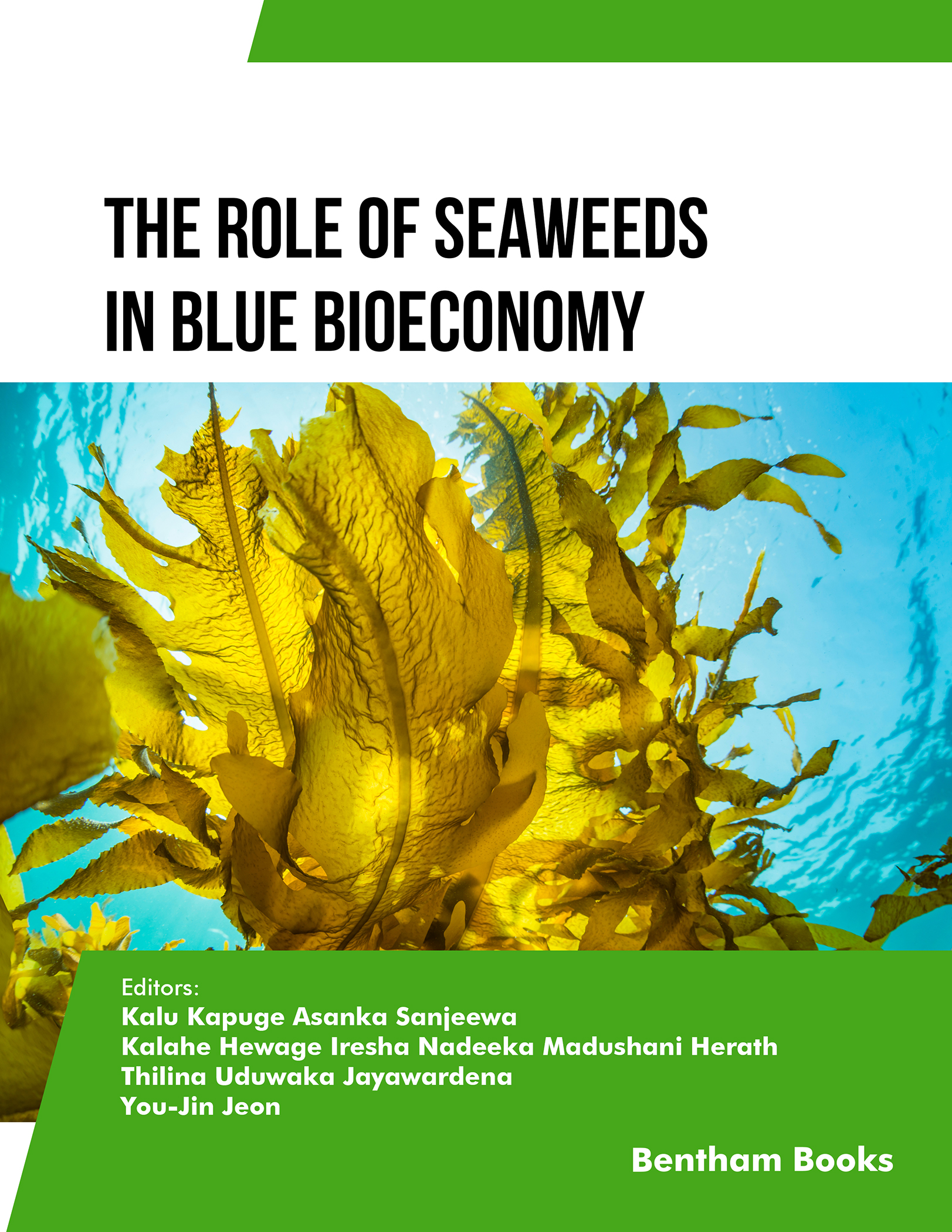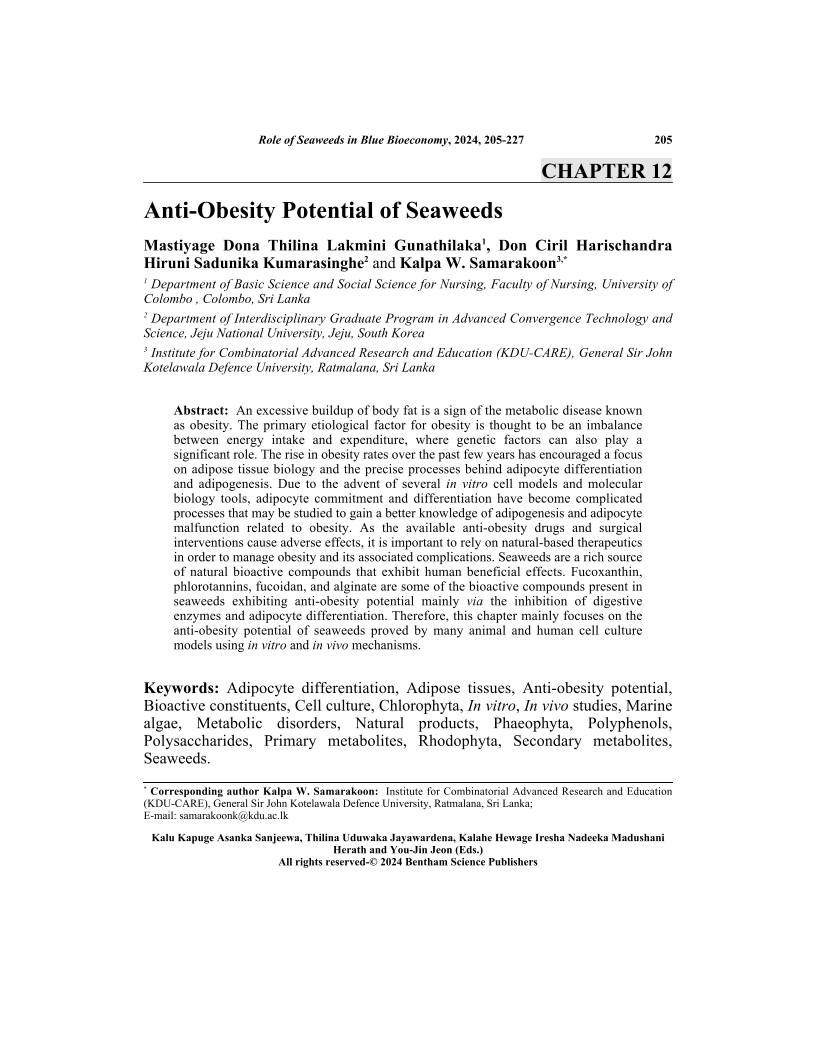Anti-Obesity Potential of Seaweeds

- Authors: Mastiyage Dona Thilina Lakmini Gunathilaka1, Don Ciril Harischandra Hiruni Sadunika Kumarasinghe2, Kalpa W. Samarakoon3
-
View Affiliations Hide Affiliations1 Department of Basic Science and Social Science for Nursing, Faculty of Nursing, University of Colombo , Colombo, Sri Lanka 2 Department of Interdisciplinary Graduate Program in Advanced Convergence Technology and Science, Jeju National University, Jeju, South Korea 3 Institute for Combinatorial Advanced Research and Education (KDU CARE), General Sir John Kotelawala Defence University, Ratmalana, Sri Lanka
- Source: The Role of Seaweeds in Blue Bioeconomy , pp 205-227
- Publication Date: May 2024
- Language: English
Anti-Obesity Potential of Seaweeds, Page 1 of 1
< Previous page | Next page > /docserver/preview/fulltext/9789815223644/chapter-12-1.gif
An excessive buildup of body fat is a sign of the metabolic disease known as obesity. The primary etiological factor for obesity is thought to be an imbalance between energy intake and expenditure, where genetic factors can also play a significant role. The rise in obesity rates over the past few years has encouraged a focus on adipose tissue biology and the precise processes behind adipocyte differentiation and adipogenesis. Due to the advent of several in vitro cell models and molecular biology tools, adipocyte commitment and differentiation have become complicated processes that may be studied to gain a better knowledge of adipogenesis and adipocyte malfunction related to obesity. As the available anti-obesity drugs and surgical interventions cause adverse effects, it is important to rely on natural-based therapeutics in order to manage obesity and its associated complications. Seaweeds are a rich source of natural bioactive compounds that exhibit human beneficial effects. Fucoxanthin, phlorotannins, fucoidan, and alginate are some of the bioactive compounds present in seaweeds exhibiting anti-obesity potential mainly via the inhibition of digestive enzymes and adipocyte differentiation. Therefore, this chapter mainly focuses on the anti-obesity potential of seaweeds proved by many animal and human cell culture models using in vitro and in vivo mechanisms.
-
From This Site
/content/books/9789815223644.chapter-12dcterms_subject,pub_keyword-contentType:Journal -contentType:Figure -contentType:Table -contentType:SupplementaryData105

